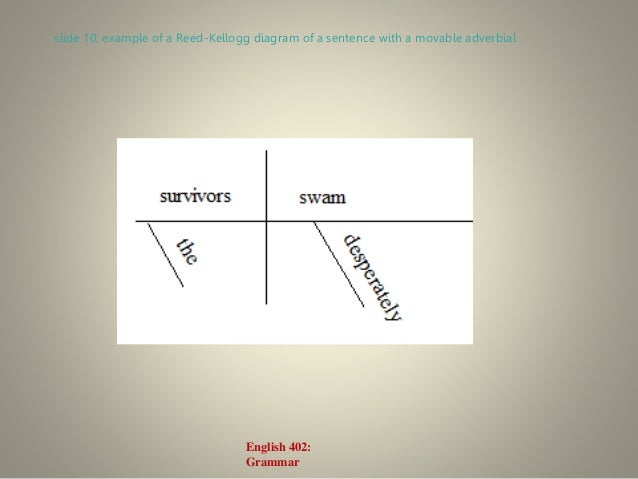Slot Example Sentence
The most common nominal clauses are interrogative clauses and (nominal) that-clauses. Nominal clauses are formed when an interrogative or nominal-that introduces a clause by serving as the subject of the clause or preceding the clause in order to serve a noun role in another structure. In short, Nominal Clauses can serve any nominal role: subject, direct object, subject complement, object of the preposition, object complement, indirect object, adjective complement, or appositive.
The first nominal clause form is an interrogative clause, which is a dependent clause beginning with an interrogative.
- Whoever borrowed my iPad is in big trouble.
- I know when the train will arrive.
- The mediator will give what you said full consideration before negotiating the deal.
- Figure 1: An example of relation extraction from the TAC KBP corpus. Most challenging “slot filling” task of filling in the relations between entities in the text. Organized relational knowledge in the form of “knowledge graphs” has become an important knowledge resource. These graphs are now exten-sively used by search engine.
- In this example, the student is creative and good at focusing on tasks but is quiet in a group setting. In the context of a swot analysis of a person, 'weaknesses' doesn't indicate a lack of character or a problem with the person.
How to use slot in a sentence. The slot list of example sentences with slot. The basic parts of a sentence are the subject and the verb. The subject is usually a noun—a word (or phrase) that names a person, place, or thing. The verb (or predicate) usually follows the subject and identifies an action or a state of being. See if you can identify the subject and the verb in each of the following short sentences.
The most common interrogatives are who, whom, whose, which,where, when, and why. As you can see, this list is basically the same as the list of relatives, so, once again, it is important that you always analyze in context: interrogative clauses will always function nominally and relative clauses will always function adjectivally.
The second nominal clause form is a that-clause, which is a dependent clause with the expletive that preceding the subject and serves a nominal function. NOTE: there are plenty of cases where the that, as part of the that-clause, may be deleted.
- The truth was that the moving company lost all your furniture.
- The truth was the moving company lost all your furniture.
- I am pleased that you are studying noun clauses.
- I am pleased you are studying noun clauses.
So whenever you see a clause following immediately after, especially, a Main Verb Phrase (or non-finite verb) without a dependent clause marker or punctuation, you should suspect a deleted that.
Nominal clauses perform nominal functions; in other words, they can do anything that a noun can do.
Subject (SUBJECT SLOT)
- Whoever ate my lunch is in big trouble.
- SOMEONE is in big trouble.
Subject complement (SUBJECT COMPLEMENT SLOT) - Sentence Type IV
- The truth was that the home team came back from a 30-point halftime deficit.
- The truth was SOMETHING.
Direct object (DIRECT OBJECT SLOT) - Sentence Type V
- I know when the train will arrive.
- I know SOMETHING.
Object complement (OBJECT COMPLEMENT SLOT)
- Her grandfather considers his biggest mistake that he sold his Apple stock in 1978.
- Her grandfather considers his biggest mistake SOMETHING.
Indirect object (INDIRECT OBJECT SLOT)
- The mediator will give what you said full consideration before negotiating the deal.
- The mediator will give SOMETHING full consideration before negotiating the deal.
Object of the preposition (OBJECT OF THE PREPOSITION SLOT)
- Those children run happily through whatever obstacles are placed before them.
- Those children run happily through SOMETHING.
Adjective complement
- I am pleased that you are studying noun clauses.
Appositive
- That man, whoever he is, tried to steal some library books.
To reiterate, as we discussed with Clause Types, our language does occur in consistent patterns, and that certain functional slots appear in the same places: subject before the Main Verb Phrase; direct object following the Main Verb Phrase; subject complement following a Linking Main Verb; object of the preposition following a preposition; etc. Keep this in mind, especially, when analyzing for nominal clauses.
To test your understanding of the concepts discussed on this page, begin with the link below for an example practice exercise:
For a bit more of a challenge, analyze the following passage for nominal clauses.
What was left of Margot's mind reeled. She could hear the listless, scraping sounds of fingertips against the door. It haunted her to consider that a sea of faces lurked outside. They were faces she once knew in a different light, but now they were putrid reflections of squalor and decay. There was only what she could glean from their lifeless eyes: the grim reminder that she was alone. She tried to ignore what appeared before her, but she truly believed she was the last bastion of humanity. Death awaited her outside.
To review your answers to these two samples, check the NOMINAL CLAUSE SAMPLES ANALYSES page.
- Introduction
- Clause Types
- -Clause Type I
- -Clause Types II-IV
- -Clause Type V
- -Seeing Clause Types
- Clause Forms
- -Subordinate Clauses
- -Relative Clauses
- -Nominal Clauses
- 'Other' Clauses
- Analyzing Examples
- Practice Exercises
- -Interactive Answers
- -Complex Answers
